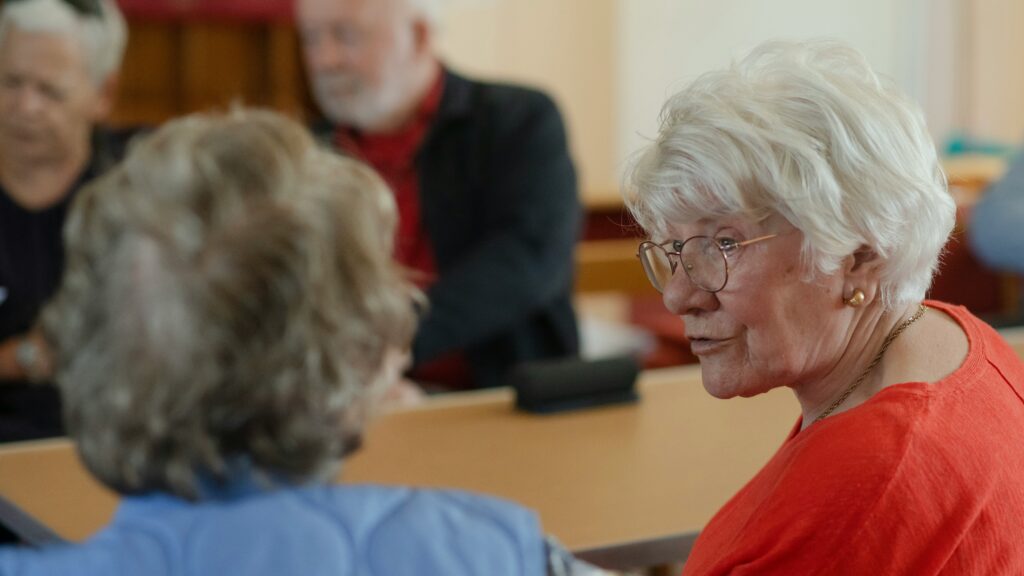The book Social Sustainability in Ageing Welfare States discusses social sustainability from different perspectives. In their book chapter, Minna Zechner and Lena Näre explain how the care perspective on social sustainability directs attention to social relationships involved in fulfilling individual needs.

Longevity has been understood as one important indicator of economic justice and equality across the world (Sen, 1998; Liou, Joe, Kumar, & Subramanian, 2020). Even though older adults live longer in good health (Weber & Loichinger, 2022), the mere share of older adults in populations means more care needs, and with declining birth rates less people who care for them. Therefore, the question of successful ageing and well-being in older age usually needs to be accompanied with a question of who has the right to good quality and affordable care, and under what conditions?
The right to receive care goes hand in hand with the right to provide care in conditions that do not deprive care providers’ well-being, notwithstanding whether it is paid or unpaid. This points to the inherent relationality of care, whereby the well-being of the person giving and the person receiving care are interconnected. The concept of care refers to meeting the needs of those individuals who need assistance in managing their everyday life due to reasons of young or old age, disability, illness, or frailty (Anttonen & Zechner, 2011). The unequal distribution of care and care work impedes social sustainability.
Sustainability has a social dimension which requires addressing the interconnections between poverty, inequality, and environmental degradation while ensuring the meeting of the needs of the present generations without compromising the ability of future generations to meet their own needs (WCED, 1987).
Care is an indispensable part of the economy
Social sustainability tends to be often absent in sustainability discourses. One of the reasons for this is that economic growth is often presented as the prerequisite for the operation of the welfare state, and without economic growth the welfare state must retreat, and this means the weakening of the social aspects such as care services (Bonvin & Laruffa, 2022). Approaching social sustainability from the perspective of care directs attention to the relationships involved in fulfilling individual needs.
An often-omitted fact is that care is an indispensable part of the economy, not only since it reproduces and sustains the labor force, but also as the gendered unpaid activities in households are tightly connected with economy as the household production processes rely on purchased commodities (Munro, 2019).
There are several inequalities related to care
There are several long-lasting inequalities in providing, needing, and accessing care that relate for example to gender, socio-economic background, race, disability, age and sexual orientation. These inequalities in care are part of a global challenge that may be paralleled to climate change. Ageing of the population is not an addressable challenge as such, but the way caregiving and receiving are inequitably distributed is.
As sustainability in climate change requires a new world order where raw materials and continuous economic growth are not taken for granted, social sustainability also needs to be defined and positioned. This may be an opportunity to end assumptions that the unpaid care and domestic work undertaken predominantly by women is a free commodity (e.g., Fraser, 2016; Wichterich, 2015).
About the book
Social Sustainability in Ageing Welfare States (eds. Vaalavuo, Nelson & Kuitto): Social Sustainability in Ageing Welfare States. This is an Open Access title.
References
Anttonen, A., & Zechner, M. (2011). Theorizing care and care work. In B. Pfau-Effinger, & T. Rostgaard (Eds.). Care between work and welfare in European societies (pp. 15–34). Houndmills: Palgrave Macmillan.
Bonvin, J.-M., & Laruffa, F. (2022). Towards a Capability-Oriented Eco-Social Policy: Elements of a Normative Framework. Social Policy and Society, 21(3), 484–495. https://doi.org/10.1017/S1474746421000798
Fraser, N. (2016). Contradictions of capital and care. New Left Review 100, 99–117.
Liou, L., Joe, W., Kumar, A., & Subramanian, S. V. (2020). Inequalities in life expectancy: An analysis of 201 countries, 1950–2015. Social Science & Medicine, 253, 112964. https://doi.org/10.1016/j.socscimed.2020.112964
Munro, K. (2019). “Social Reproduction Theory,” Social Reproduction, and Household Production. Science & Society, 83(4), 451–468. doi:10.1521/siso.2019.83.4.451
Sen, A. (1998). Mortality as an indicator of economic success and failure. The Economic Journal, 108(446), 1–25. https://doi.org/10.1111/1468-0297.00270
WCED. (1987). Our Common Future (Brundtland Report). United Nations World Commission on Environment and Development. Retrieved from https://sustainabledevelopment.un.org/content/documents/5987our-common-future.pdf.
Weber, D., & Loichinger, E. (2022). Live longer, retire later? Developments of healthy life expectancies and working life expectancies between age 50–59 and age 60–69 in Europe. European Journal of Ageing, 19, 75–93. https://doi.org/10.1007/s10433-020-00592-5
Wichterich, C. (2015). Contesting green growth, connecting care, commons and enough. In W. Harcourt & I. L. Nelson (Eds.). Practising Feminist Political Ecologies: Moving Beyond the ‘Green Economy’ (pp. 67–100). London: Zed Books.


